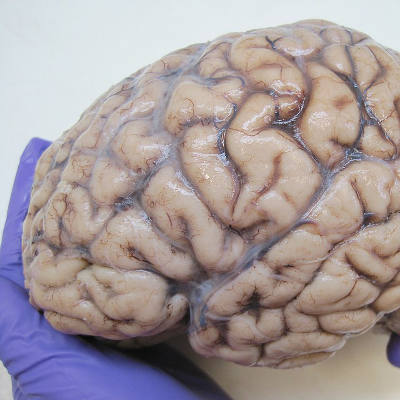Putting your child in front of a TV might hurt their ability to process the world—new data
Jan. 09, 2024.
3 mins. read.
3 Interactions
Important implications for attention deficit hyperactivity disorder and autism
Babies and toddlers exposed to television or video viewing may be more likely to exhibit atypical sensory behaviors, according to data from researchers at Drexel’s College of Medicine published today in the journal JAMA Pediatrics.
Children may become disengaged and disinterested in activities, seeking more intense stimulation in an environment, or being overwhelmed by sensations like loud sounds or bright lights, according to the researchers.
They found that by 33 months, children exposed to greater TV viewing by their second birthday were more likely to develop atypical sensory processing behaviors, such as “sensation seeking” and “sensation avoiding,” as well as “low registration”—being less sensitive or slower to respond to stimuli, such as their name being called.
The team pulled 2011-2014 data on television or DVD-watching by babies and toddlers at 12–18 and 24–months from the National Children’s Study of 1,471 children (50% male) nationwide.
The findings suggest:
- At 12 months, any screen exposure compared to no screen viewing was associated with a 105% greater likelihood of exhibiting “high” sensory behaviors instead of “typical” sensory behaviors related to low registration at 33 months
- At 18 months, each additional hour of daily screen time was associated with 23% increased odds of exhibiting “high” sensory behaviors related to later sensation avoiding and low registration.
- At 24 months, each additional hour of daily screen time was associated with a 20% increased odds of “high” sensation seeking, sensory sensitivity, and sensation avoiding at 33 months.
Important implications
The findings add to a growing list of concerning health and developmental outcomes linked to screen time in infants and toddlers, including language delay, autism spectrum disorder, behavioral issues, sleep struggles, attention problems and problem-solving delays.
“This association could have important implications for attention deficit hyperactivity disorder and autism, as atypical sensory processing is much more prevalent in these populations,” said lead author Karen Heffler, MD, an associate professor of Psychiatry in Drexel’s College of Medicine.
“Repetitive behavior, such as that seen in autism spectrum disorder, is highly correlated with atypical sensory processing. Future work may determine whether early life screen time could fuel the sensory brain hyperconnectivity seen in autism spectrum disorders, such as heightened brain responses to sensory stimulation.”
The American Academy of Pediatrics (AAP) discourages screen time for babies under 18–24 months. Live video chat is considered by the AAP to be okay, as there may be benefit from the interaction that takes place. AAP recommends time limitations on digital media use for children 2 to 5 years to typically no more than 1 hour per day.
“Parent training and education are key to minimizing, or hopefully even avoiding, screen time in children younger than two years,” said senior author David Bennett, PhD, a professor of Psychiatry in Drexel’s College of Medicine.”
Digital media
Although the current paper looked strictly at television or DVD watching, and not media viewed on smartphones or tablets, it does provide some of the earliest data linking early-life digital media exposure with later atypical sensory processing across multiple behaviors.
The authors said future research is needed to better understand the mechanisms that drive the association between early-life screen time and atypical sensory processing.
Citation: Heffler KF, Acharya B, Subedi K, Bennett DS. Early-Life Digital Media Experiences and Development of Atypical Sensory Processing. JAMA Pediatr. Published online January 08, 2024. https://jamanetwork.com/journals/jamapediatrics/article-abstract/2813443
Let us know your thoughts! Sign up for a Mindplex account now, join our Telegram, or follow us on Twitter.


.png)

.png)


.png)






3 Comments
3 thoughts on “Putting your child in front of a TV might hurt their ability to process the world—new data”
I agree with everything mentioned in the article.
🟨 😴 😡 ❌ 🤮 💩
🟨 😴 😡 ❌ 🤮 💩
Related: Children’s Brains Shaped By Their Time On Tech Devices, https://magazine.mindplex.ai/mp_news/childrens-brains-shaped-by-their-time-on-tech-devices/
🟨 😴 😡 ❌ 🤮 💩